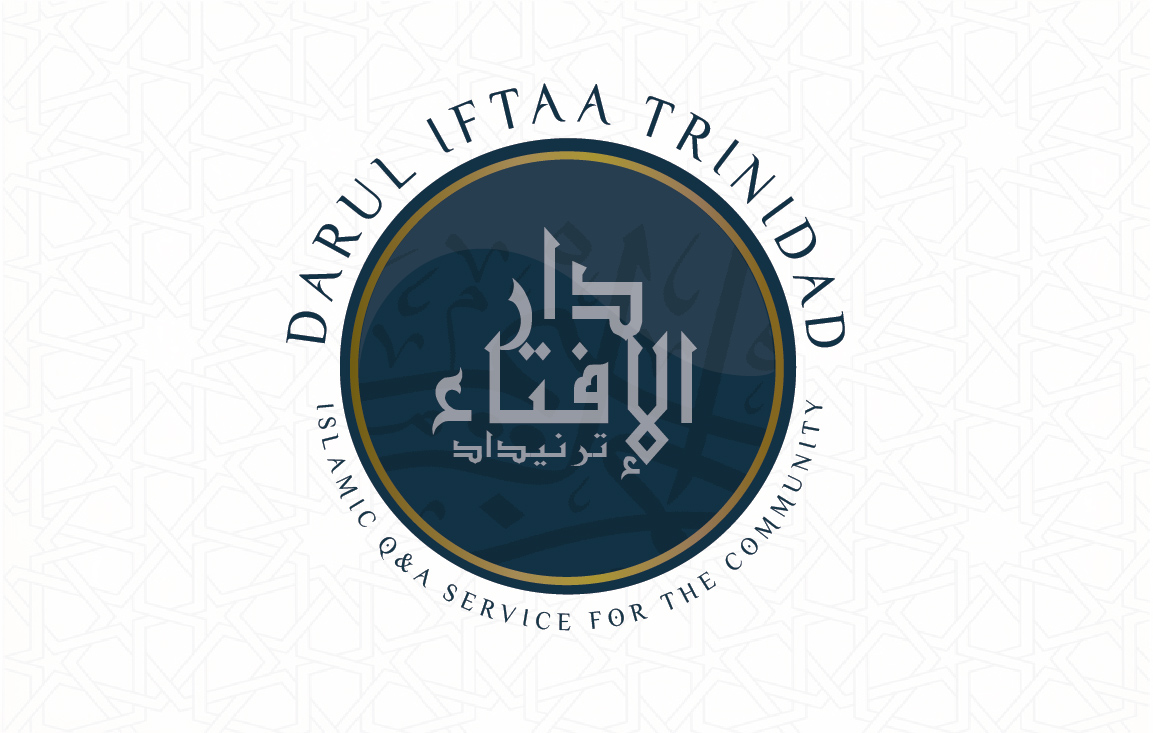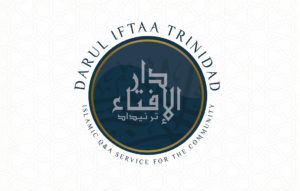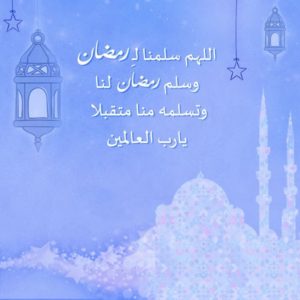
Acts which do Not Invalidate the Fast
1. Injections/vaccination /IV Drips/insulin.
2. Applying oil/ henna/ dye/ to the hair.
3. Using eye-drops or kohl/surma.
4. Applying perfume or inhaling it.
5. Taking a shower for refreshment.
6. Using Miswak. NB- Swallowing the remaining taste of the natural miswak will not break your fast, however it would be best to spit it out.
7. Swallowing of one’s own saliva.
8. Vomiting unintentionally regardless of the amount.
9. Vomiting intentionally less than a mouth full.
10. Unintended entrance of smoke/dust into the throat.
11. Wet dream during the day.
12. Delaying the compulsory ghusl until after the break of dawn.
13. Applying medicine/oil/drops in the ear (unless the eardrum is perforated) NB- Modern day medical research shows that there is no direct passage from the ear to the throat, unless there is a hole in the eardrum.
14. Donating blood / taking a blood test.
15. Cutting nails/hair/shaving.
16. Cupping (Should be avoided if it leads to weakness).
17. Kissing without the exchange of saliva (should be avoided for one who cannot control his desires).
18. Acid reflux, if acidity remains in the oesophagus, even though the bitterness could be tasted. If however, the substance enters the mouth it must be expelled. The fast will be broken if swallowed deliberately.
19. Waking up after the break of dawn, hence not being able to partake of suhoor (predawn meal).
20. Applying Vicks to the nose.
21. Casual usage of the normal Vicks inhaler. (Should be avoided if not necessary).
22. Eating/drinking /sexual relations forgetting that one is fasting. One must stop as soon as he remembers.
23. Pain/Nicotine/Hormone patches.
24. Emission of seminal fluids without physical contact – (i.e. touching /caressing etc.)
25. Rinsing the mouth/nose provided that water does not enter the throat.
26. Emission of pre-seminal fluid (Mazi) and Wadiy – a thick sticky substance that comes out after urination.
27. Firm intention to break one’s fast during the day without actually eating or drinking.
28. Bleeding gums even though it may slip down the throat, provided that the blood swallowed is less in proportion to the saliva.
29. Breastfeeding /Expressing milk.
30. Blood discharged by a pregnant woman.
31. Vaginal discharge in other than menstrual period.
32. Swimming (with the condition that water does not enter the throat, should be avoided).
33. Forgetting to make intention for fasting before the break of dawn. NB – One’s fast is still intact if he makes intention any time before half of the day has passed, provided that he did not perform an act that will nullify his fast since the break of dawn.
34. Flavoured Miswaks provided that the flavour/substance is not swallowed..(should be avoided)
35. Usage of Tampon/ Contraceptive coils.
36. Tablets/Pills placed under the tongue to treat angina or other medical cases, with the condition that it does not enter the throat.
37. Becoming unconscious.
38. Dialysis.
39. Dental fillings/ tooth extractions/ cleaning, as long as one does not swallow any particles.(Should avoided)
40. Cervical smear test /Pap smear.
41. Internal Ultrasound Examination NB Medical research proves that there is no direct connection between the uterus and the intestine. (ضابط المفطرات)
42. Inhaling fumes from paint/glue/gasoline/chemicals/ substances which does not have a perceptible body.
43. Infusion of medicine/liquids into urethra.
44. Inserting dye into the bloodstream for medical purposes, e.g. Coronary angiography.
45. Acupuncture.
46. External usage of creams/lotions/ointments.
47. External usage of Limacol/Alcolado/ methylated spirit/rubbing alcohol etc.
48. Mosquito/fly entering the throat.
Acts which are Makrooh (disliked) but Do Not Invalidate the Fast
49. Tasting with the tongue only, without the substance being swallowed.
50. Using toothpaste/tooth power (with the condition that the substance is not swallowed).
51. Rinsing using a mouthwash provided that nothing enters the throat.
52. Gargling, provided that water doesn’t enter the throat NB in case if a compulsory bath rinsing will suffice.
53. Chewing a piece of cloth/thread/plastic etc. which is tasteless, void of flavour/inedible, as long as the item is not swallowed.
54. Wearing lip balm provided that it is not swallowed.
NB-The above mentioned are categorized “Disliked” as they can nullify one’s fast if any substance slips down the throat, even if this occurs accidentally or unintentionally.
55. Nutritional injections/ Supplements e.g. Vitamin B12
Acts that nullify the fast and necessitate Qadha Only
Qadha is to keep a single fast in place of the one that was nullified.
56. Smoking cigarettes /E-Cigarettes/Hookah etc.
57. Water slipping down the throat while performing Wudhu or Ghusl, even if not done deliberately.
58. Insertion of suppositories/enemas/ liquids/gels etc. into the anal passage.
59. Deliberately vomiting a mouthful or more.
60. Deliberately swallowing one’s vomit, even a little, regardless if it came out unintentionally or not.
61. Applying medicine to one’s mouth /nose and then the substance enters the throat.
62. Usage of mist/steam / Ventolin inhaler/ puffs, nebulizer.
63. Deliberately and purposely inhaling incense/ loban smoke or any matter that has a perceptible body.
64. Ejaculation due to physical contact – (touching/ kissing/caressing and fondling).
65. Masturbation NB-This however is a sinful act.
66. Eating/drinking on the assumption that it is still night then realizing that dawn has already broken.
67. Eating mistakenly, assuming that the sun has already set, while in reality it did not.
68. Swallowing any foreign object even if it is smaller than a split pea (edible or not).
69. Swallowing particles stuck between the teeth the size of a split pea or larger.
70. Inhaling snuff (tobacco powder) into the nostrils.
71. A woman commencing her menstrual cycle.
Acts that necessitate Qadha and Kaffarah
Kaffarah is a penalty of fasting sixty consecutive days.
72. Eating/drinking while one is fully aware that he is fasting.
73. Intercourse (just mere penetration, even if emission of fluids didn’t occur). Kaffarah will be Wajib upon both husband and wife.
NB-One whose fast has been broken, except by menstruation, MUST refrain from the nullifiers of fast until sunset.
Other Rulings Relating to Fasting
74. A traveller (by definition of the Shariah), has the choice to keep the fast or not, even though the journey is not difficult, however it is better to fast.
75. A sick person, whose illness may worsen due to fasting or it may lead to death, is also excused from fasting.
76. Students writing/studying/preparing for exams are NOT excused from fasting.
77. A pregnant /nursing woman who fears harm to herself or her baby is excused from fasting, however if there is no fear then she must fast.
78. A woman experiencing her menstrual cycle/post natal bleeding is NOT allowed to fast until she attains purity.
79. Those exempted from fasting should avoid eating/drinking in the presence of those fasting.
80. A menstruating woman who sees blood more than her usual habit should refrain from fasting, as this may be regarded as part of her menstrual cycle.
81. If a woman in her menses becomes pure anytime during the day, she must refrain from eating/drinking etc. until sunset.
82. If a woman experiences the signs and symptoms of her menstrual cycle, but hasn’t seen any blood, her fast will remain intact.
83. Blood discharged after ten days of menstrual cycle will be considered abnormal bleeding, hence it will be compulsory for her to observe the fast.
84. It is permissible for a woman to use medicine in order to delay her menstrual cycle. However, she should accept the decree of Allah Ta’ala by not taking any medication.
85. A woman does not need to seek permission from her husband to fast in the month of Ramadhan, if the husband does not consent, she is still obliged to fast.
86. A traveller has the choice to keep the fast or not, even though the journey is not difficult and tiresome, however it is better to fast.
87. If a person decides to undertake a journey, and is departing after the break of dawn, then he must fast that day.
88. If a person undertakes a journey in Ramadhan for leisure/entertainment, then he still has the choice of keeping the fast or not. NB- The month of Ramadhan is very precious and should be spent in a worthwhile manner.
89. A traveller who is not fasting, returns to his hometown anytime during the day, he must refrain from the invalidators of fast until sunset.
90. A traveller who is not fasting, intends during the day temporary residence (for at least 15 days), must refrain from the invalidators of fast until sunset.
91. If a person feels extreme hunger or thirst, and fears that he may die if he continues fasting, then he is allowed to break his fast and do Qadha for that day.
92. An individual whose job is laborious and demands physical strength is NOT absolved from fasting, rather he should make special arrangements to facilitate the Holy Month of Ramadhan.
93. Giving Iftaar to a fasting person does not absolve one from keeping the fast.
94. If a person has a sickness that prevents him from fasting and he hopes to recover, then he is permitted to delay his fast, and make Qadha after recovery.
95. If a person is suffering from a chronic disease which prevents him from fasting, then he will have to give Fidya for each day’s fast.
96. A person who gave Fidya (because of a chronic disease which prevented him from fasting), recovers and is able to fast, then such a person must do Qadha for all missed fasts, as Fidya will no longer suffice.
97. An elderly person who has lost his strength and is getting weaker every day, will have to give Fidya for each day’s fast.
98. A person who was unable to complete his previous Qadha fasts before Ramadhan commences, does not have to pay Fidya. However, Qadha for the previous missed fast will still be Wajib on him.
NB: It is obligatory upon each and every individual to observe Qadha of all missed fast in his/her lifetime from the time of Bulugh (maturity). Only if a person is not able to fast anymore, (because of a chronic disease or old-age) he should give Fidya for each missed fast.
99. If a person is eating and hears the Adhan for Fajr or is informed that the break of dawn has entered then he MUST spit out whatever is in his mouth.
100. A person who is working in such an environment where he is in constant contact with dust particles/ smoke/cement dust/sawdust /sand etc. should wear a dust mask as a precautionary measure.
And Allah Ta’ala Knows Best
For further clarification and inquiries please contact: Darul Ifta Jaamia Madinatul Uloom
(Department of Islamic Jurisprudence for Guidance in Islamic law, Personal, Social and Business related matters)
Tel: 306-9093, 397-7667, 368-0010 Website- www.Jaamia.net / www.fatwa-tt.com Email: jmudarulifta@gmail.com


